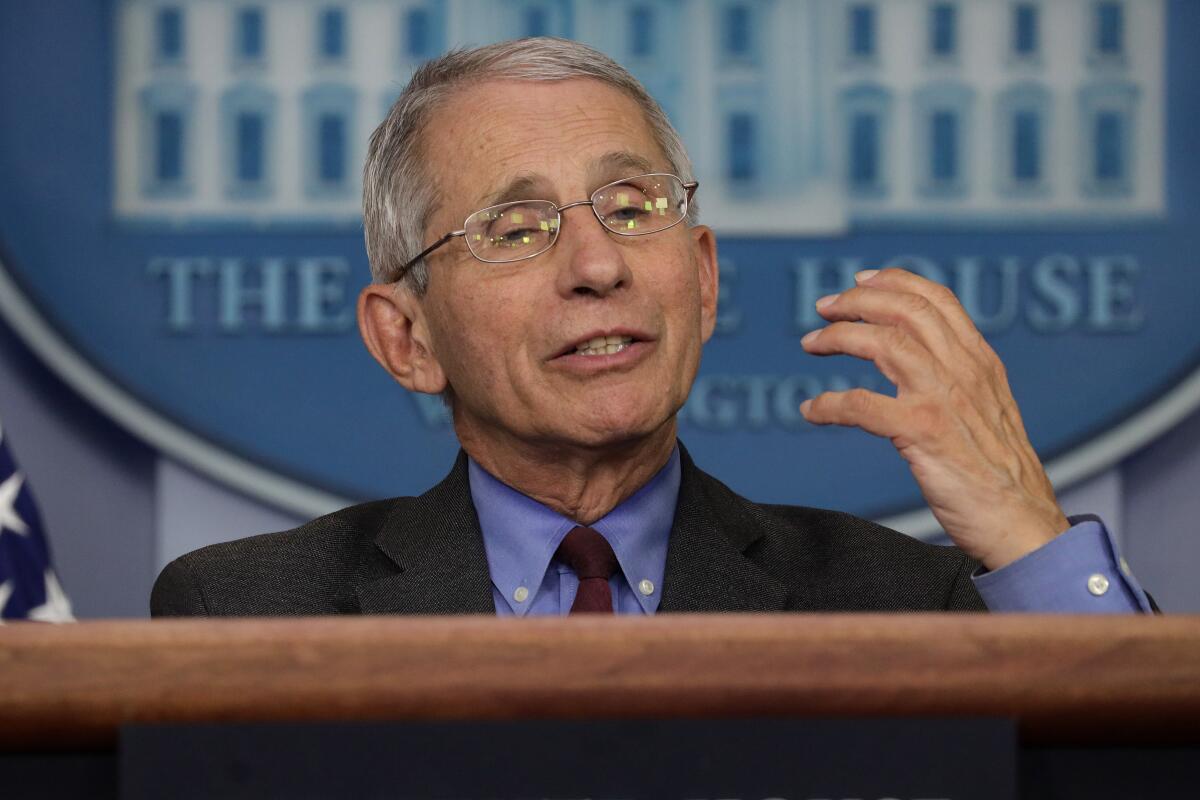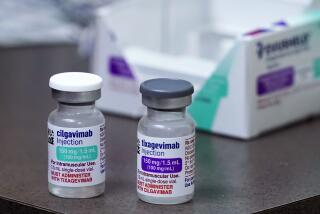Remdesivir helps beat COVID-19. But the search for a better drug goes on

- Share via
As another study comes out showing no real benefit for COVID-19 patients from hydroxychloroquine, the anti-malarial medication that was heavily promoted by President Trump, all eyes are on remdesivir, an experimental drug that has shown positive results in a large, controlled study.
The FDA issued emergency authorization for the drug and attempts are being made to ramp up production after Dr. Anthony Fauci, who leads the National Institute of Allergy and Infectious Diseases, extolled the results, saying the show that “remdesivir has a clean-cut, significant, positive effect in diminishing the time to recovery” and would be the new standard of care for coronavirus.
For the record:
7:13 a.m. May 8, 2020An earlier version of this post incorrectly stated that remdesivir reduced the hospital stays of the patients studied by 31%. The correct figure is 27%.
It’s true that the drug helped some patients recover faster. The amount of time in the hospital was reduced by four days, or 27%, among patients who took the drug. It’s a good result, especially if there’s a problem with overwhelmed hospitals that need to free beds in order to treat more patients.
But it’s hardly everything we’d wished for. What everyone really wants is a drug that prevents death and keeps patients from needing ventilators, which can cause lasting physical trauma. Remdesivir did have an association with lower death rates, but it wasn’t enough of a difference to be counted as statistically significant. Close, but not enough to show that the drug rather than a statistical fluke caused the difference.
In fact, the original key measure for the study was to see whether remdesivir lowered death rates. But a couple of weeks before the results were released, the researchers moved the primary goal posts, focusing instead on whether the drug reduced the recovery time for patients who survived. Death rates were switched to a secondary result.
Fauci said the objective was changed so that patients who had been on a placebo could be switched to remdesivir. Relief of suffering and the earlier release of hospital beds are certainly important and valid goals. But this hardly makes remdesivir the lifesaver the public craves. And many scientists are concerned because the only information about the drug that’s been issued so far has come from a press release by Gilead Sciences, the maker of remdesivir.
It’s not time to discount remdesivir — or hydroxychloroquine — as potentially life-saving drugs. Treatment earlier in the disease’s course might prove more fruitful. Future studies might show a significant difference in reducing death rates with remdesivir.
A fearful public has a new tool against the coronavirus, but nothing so far shows that it has a drug that will drastically change the heartbreaking end that COVID-19 has brought to more than 75,000 American lives so far.
More to Read
A cure for the common opinion
Get thought-provoking perspectives with our weekly newsletter.
You may occasionally receive promotional content from the Los Angeles Times.










